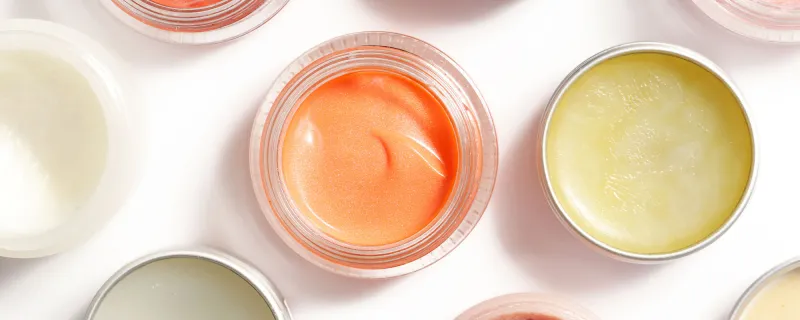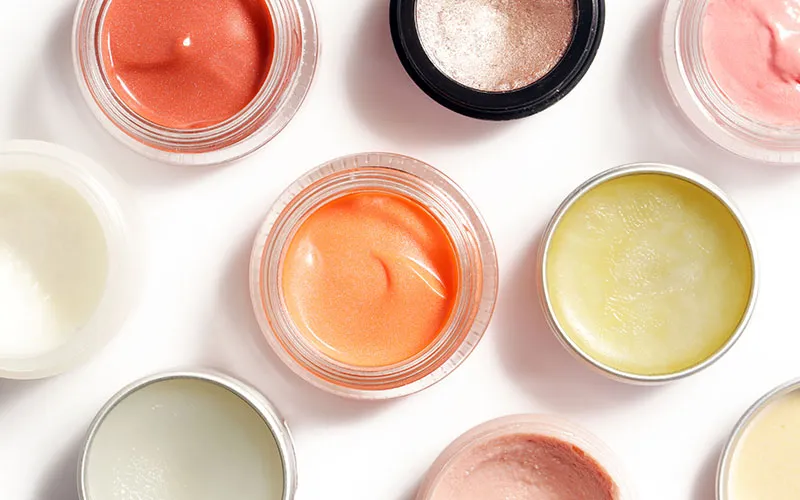


Wellness is so hot right now

Being healthy is certainly cool, and so are the products and services that support the lifestyle. What are the current trends in the HBL market place, and where did they come from? And how can brands not currently in this category adopt the same philosophies? Well, let’s take a look, shall we?
I consider myself lucky to work in an HBL agency (Health, Beauty & Lifestyle). It’s given me a good preview of what’s coming down the line. The brands we work with are close to my heart - ones I use myself in fact!
The last 18 months have been really exciting when it comes to HBL trends.
One of my favourites have been the advent of facial oils - which I personally am a huge believer in. I had the pleasure of being involved with the stunning new brand identity of facial oils TRUE SKINCARE for entrepreneur Emma Thornton.
There’s also a growing interest in the microbiome. L’Oréal are partnering with Silicon Valley-based uBiome to conduct new research on the skin's bacterial ecosystem, the goal being to inform future product development at L'Oréal. It’s big news, so we are lucky to work with Symprove - who we affectionately refer to as the “Rolls Royce of probiotics”.
Another trend is personalisation which is still going from strength to strength, especially in the hair industry. I’m looking forward to my first experience with Schwarzkopf Professional SalonLab™. The hand held device analyses hair at a molecular level, taking the guess work out which products & services are best, and then formulates and produces the customized hair care product for the client - right in the salon.
What about the future?
One thing I’ve noticed lately is a lot of these trends seem to sit under the category “wellness”.
Veganism, sleep, restorative exercise, transformative travel – people really are taking better care of themselves these days.
Where you see this most is on social media. Instagram is packed with stunning yogis decked out in Lulu Lemon sharing their morning vegan smoothie before taking us through our online yoga class. Personal trainers are educating us and helping us improve performance; and aspiring chefs are sharing recipes for healthy meals you can rustle up in no time.
Gone are the days when you gained fame and notoriety for a decadent lifestyle. These days you get more followers and fans from promoting a healthy one. Even the original party girl Kate Moss is at it. 'I’ve learned to take care of myself a bit more, I do yoga every day. I don’t go out nearly as much. And I take care of my skin,”.
Being healthy is certainly cool, and so are the products and services that support the lifestyle. The wellness industry is massive and has brought with it a budding array of young entrepreneurs who have built successful brands through passion, purpose and a canny use of social media.
Three of the stars driving the wellness market
Deliciously Ella was started back in 2012 while Ella was at university. She turned to a plant-based diet and lifestyle overhaul to manage a condition she was diagnosed with called Postural Tachycardia Syndrome. She now has a successful blog and a large social media community. She has moved into hosting supper clubs and teaching cooking classes, which in turn has funded the development of the Deliciously Ella app and product range.
Emma Thornton started True Skincare in 2018 having worked in the premium beauty sector for a selection of high-profile brands for a number of years. She was fed up with how much emphasis the industry put on exclusivity – be it availability or price. It made her question – why can’t something look beautiful, be effective, honest, ethical and accessible? And this is how TRUE SKINCARE was born. The brand is now available on the high street in retailers like Holland and Barrett, making it just as she wished – inclusive to all.
Dubbed the 'Gordon Ramsay' of personal training, James Smith started his brand back in 2017 out of a growing weariness of the “BS” coming from the fitness industry. Frustrated by the fitness industry pushing pricey products and creating body dysmorphia, James wanted to create an academy that focused on the basics to get results, and not on jargon and pseudo-science. It worked, and today James has featured on television, has a public speaking tour and is a verified public figure on Instagram with a community of over 600k.
These are just some of the stars driving the wellness market, now estimated to be worth a whopping $4.2Trillion. What these niche brands have in common is independence, consciousness and purpose, the reason why they are making such an impact.
And it seems bigger brands are taking notice. Lately a lot of large organisations seem to be adopting the wellness trend and its philosophies. One unlikely example is McDonald’s who are making changes to the Happy Meal, bringing it closer to a healthy meal!
This trend adoption is even more evident when you see new brands like Wicked Kitchen pop up. Tesco’s version of plant protein foods and 100% vegan-friendly meals. The brand is owned by the supermarket’s chef-director of plant-based innovation, Derek Sarno, and his brother Chad, and is Tesco’s play for ‘flexitarians’, meat reducers who eat a mixed diet of meat, vegetarian and vegan food.
Another big dog getting on the wellness trend is Unilever who acquired the very cool Bristolian brand Pukka tea. Pukka tea claims its tea has become “synonymous with wellbeing”, The move increased Unilever’s portfolio of wellness brands, who have also recently acquired Graze - and has helped grow Pukka into a £30m brand.
Speaking of brand purpose….
I suppose it’s a good thing to see these bigger brands getting on board with the wellness trend. Having more choice certainly makes life a lot easier for consumers.
But do we believe the rhetoric about purpose, and does that even matter? That depends on you are I suppose. According to Jonathan Mildenhall, President and CEO of TwentyFirstCenturyBrand “It's becoming increasingly important for the millennial and Gen Z audience, who are always looking behind the marketing narrative at the purpose and the intention of companies and brands that they engage with,".
Additionally, nearly two-thirds of millennials and Gen Z prefer brands that “have a point of view and stand for something”. They want “purpose”, they want to “feel connected”, and they want brands to help them “achieve their goals” according to PSFK research.
No high expectations then…… And this is where marketers can struggle. Getting purpose right is difficult. You can find it, you can better articulate it, but you can’t fake it.
The brands that will do best are those born with it.
Posted 1 May 2019